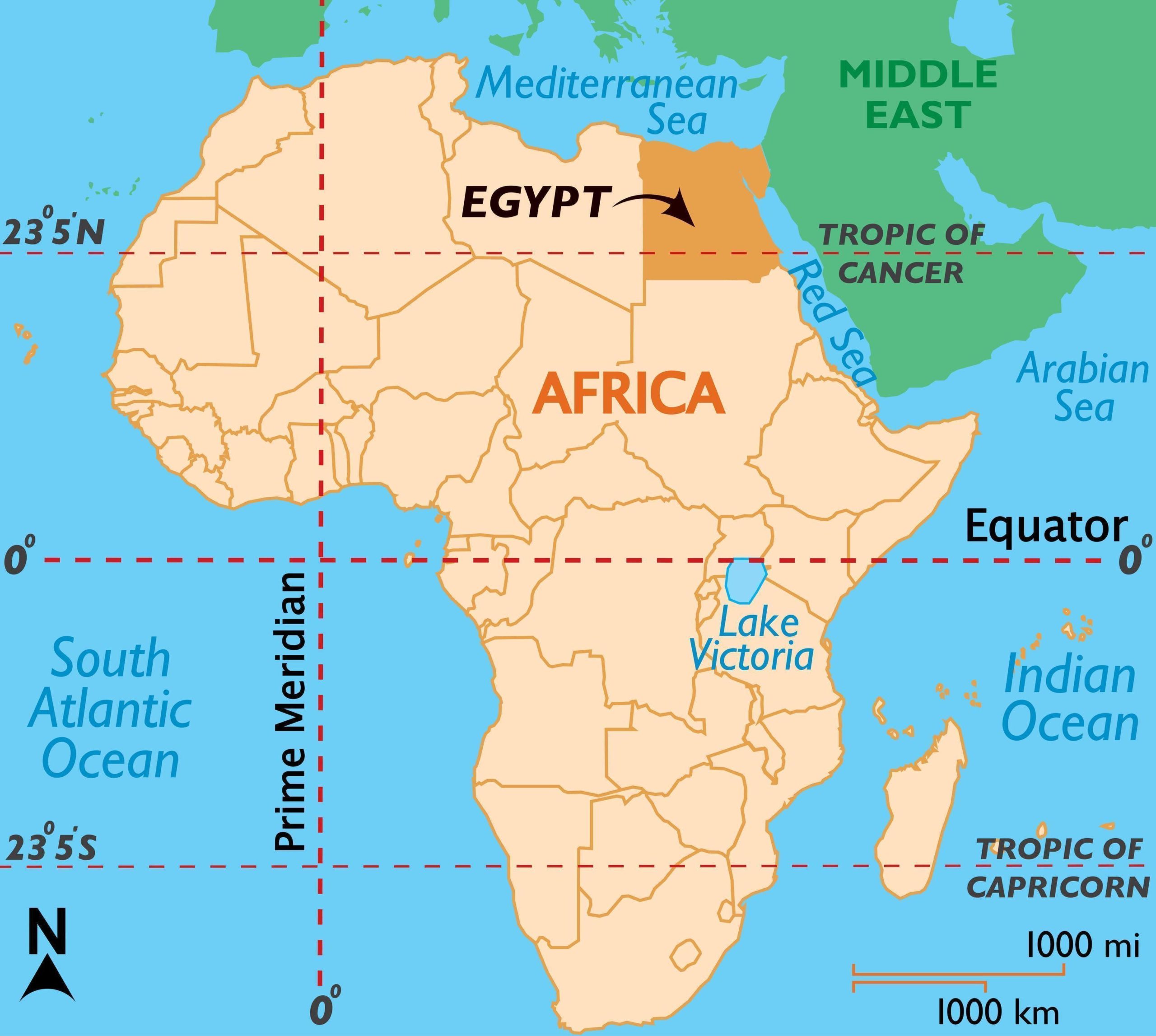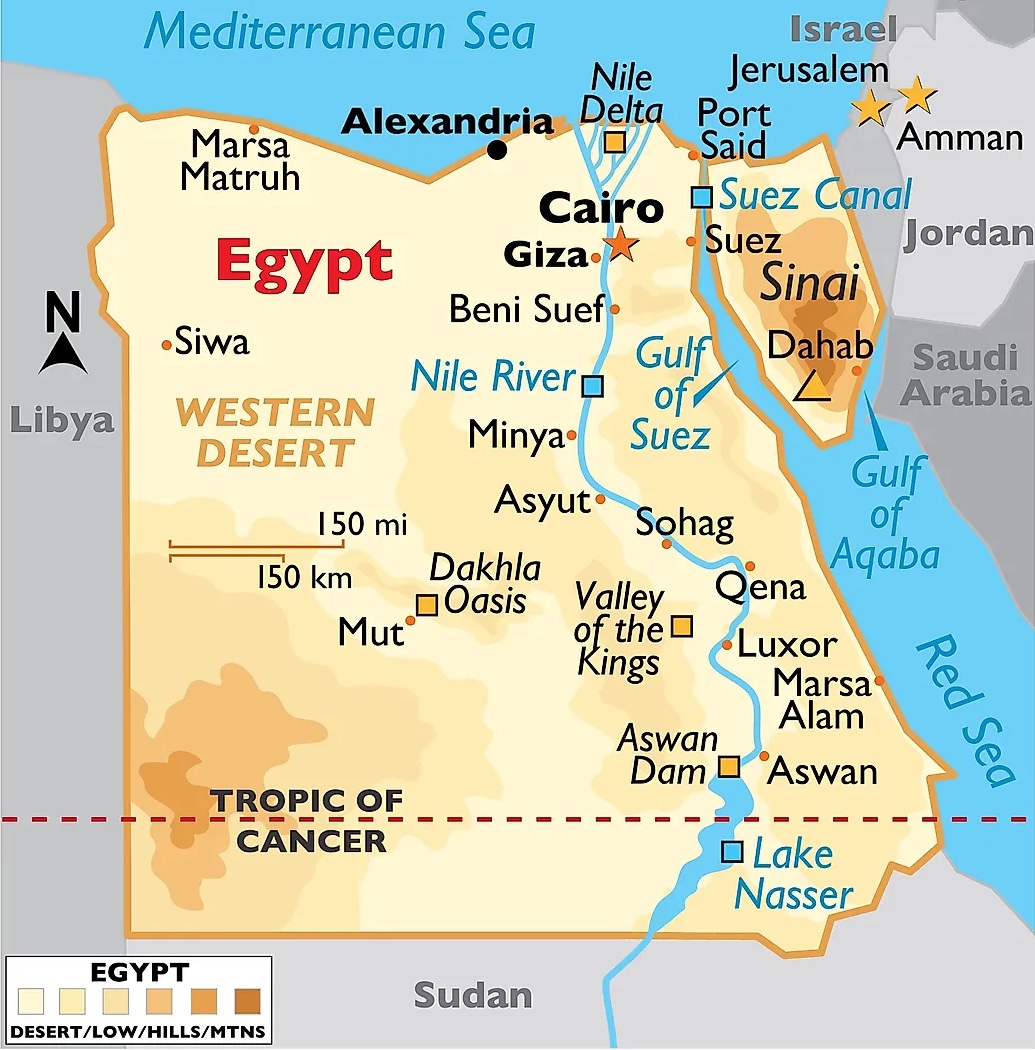ForumIAS announcing GS Foundation Program for UPSC CSE 2025-26 from 19 April. Click Here for more information.
Contents
| For 7PM Editorial Archives click HERE → |
Introduction
The President of Egypt, Abdel Fattah El-Sisi was the Chief Guest at India’s 74th Republic Day celebrations this year. In his meeting with the Prime Minister of India, the two nations agreed to elevate the India-Egypt Relationship to ‘strategic partnership’. The strategic partnership will have broadly four elements: political, defence, and security; economic engagement; scientific and academic collaboration; cultural and people-to-people contacts. Egypt’s presence at the Republic Day celebrations symbolizes the importance India accords to this relationship. The Government has pushed to enhance India’s bilateral relationships with the Middle-East nations with a renewed vigour over the last decade, indicating strategic importance of the region to India’s interests. Outreach to Egypt is a part of this approach.
What is the significance of Egypt to India?
Egypt’s Strategic Location: The Suez Canal is a major transportation link in marine trade, handling about 12% of all international trade. It serves as a gateway to both Europe and Africa. India’s business community can profit from Egypt’s advantageous location as a hub for production and re-export to numerous nations connected by his nation’s free trade agreements, particularly in the Arab world and Africa.
Source: WorldAtlas.com
Energy Resources: India is a significant importer of Egyptian crude oil and natural gas. Petroleum Oil (46.2%) and Petroleum Gas (11.1%) were India’s top imported items from Egypt in fiscal 2020-21. Egypt can be a reliable partner in fulfilling India’s energy needs.
Egypt’s Influence in the Arab World: The League of Arab States (Arab League) is headquartered in Cairo, the capital of Egypt, demonstrating its influential position in the Arab world. Arab League includes countries like Saudi Arabia, UAE, Oman, Bahrain, Iraq, Kuwait etc. among other, all of which have strategic importance. Furthermore, Egypt has productive diplomatic ties with the West. India views Egypt’s diplomatic capital as extremely important. India can anticipate Egypt, as a responsible Arab power, providing the necessary assistance to it in contentious situations.
Egypt’s Influence among the Islamic Nations: India views Egypt as a moderate Islamic voice among Muslim-majority countries, as well as a ‘friend’ within the Organisation of Islamic Cooperation (OIC). OIC is the 57-country grouping of Islamic nations. Pakistan, being a member of the OIC, uses its meetings as a platform to spread negative propaganda against India.
Shared Concerns: Both India and Egypt view the spread of violence, terrorism, and extremist ideology as a serious threat to global peace.
How has the India-Egypt Relationship evolved?
India and Egypt are home to world’s oldest civilizations. They have had a long and fruitful history of cultural exchange e.g., Ashoka’s edicts from before the Common Era make mention of his interactions with Egypt during the reign of Ptolemy II. In the Pre-Independence era, Mahatma Gandhi and Saad Zaghloul shared common goals on the independence of their countries. (Saad Zaghloul was an Egyptian revolutionary and statesman. He led a civil disobedience campaign with the goal of achieving independence for Egypt from British rule. He played a key role in the Egyptian Revolution of 1919, as well as played a role in prompting the British Unilateral Declaration of Egyptian Independence in 1922). Prime Minister Jawaharlal Nehru had an exceptionally close friendship with President Gamal Abdel Nasser of Egypt, leading to a Friendship Treaty between the two countries in 1955.
India established its relationship with Egypt immediately after Independence with the joint announcement of establishment of diplomatic relations at Ambassadorial level on 18 August, 1947.
In 1961, Prime Minister Nehru and President Nasser, along with Yugoslavia’s President Josip Broz Tito, Indonesia’s President Sukrano and Ghana’s President Kwame Nkrumah, established the Non-Aligned Movement (NAM). Between 1980 and 2010, there have been four Prime Ministerial visits from India to Egypt in 1985, 1995, 1997 and 2009. From Egypt, President Hosni Mubarak visited India in 1982, in 1983 (NAM Summit), and in 2008. High level exchanges with Egypt have continued after the 2011 Egyptian Revolution. President Mohamed Morsi visited India in March 2013. The incumbent President Sisi came to power in 2014 and had visited India earlier in 2016.
Year 2022-23 marks 75th anniversary of modern diplomatic relationship between India and Egypt. Keeping in mind the strategic importance of India-Egypt Relationship, Egypt has also been invited as a ‘Guest Country’ during India’s Presidency of G-20 in 2022-23.
What are the areas of cooperation in India-Egypt Relationship?
Trade and Investments: The India-Egypt Bilateral Trade Agreement has been in operation since March 1978 and is based on the Most Favoured Nation clause. Bilateral trade has expanded rapidly in FY2021-22, amounting toUS$ 7.26 billion registering a 75% increase compared to FY 2020-21. India’s exports to Egypt during this period amounted to US$ 3.74 billion. Egypt’s exports to India have touched US$ 3.52 billion. According to the Egyptian Central Agency for Public Mobilization and Statistics (CAPMAS), India was the 6th most important trading partner for Egypt in FY2021-22. India imports Mineral Oil/Petroleum, Fertilizers, Inorganic Chemicals and Cotton.
At present, more than 50 Indian companies have investments in Egypt totalling more than US$ 3.15 billion. There are many potential projects to establish overseas investments like the Metro projects in Cairo and Alexandria, the Suez Canal economic zone, the second Suez Canal channel, and a new administrative capital in Cairo’s suburbs among others. The Egyptian Government is considering allocating a special area of land in the Suez Canal Economic Zone (SCEZ) for Indian industries.
Russia-Ukraine conflict had threatened Egypt with a shortage for wheat, 80% of which is imported from Russia and Ukraine. In April 2022, Egypt announced inclusion of India in the list of accredited wheat suppliers to Egypt and ended a long Non-Tariff Barrier. However, a ban on wheat exports from India limited the trade, an initial shipment of 61,500 metric tons of wheat was cleared by India for Egypt in May 2022.
Bilateral mechanisms are in place to facilitate trade and economic relations between India and Egypt. The Indian Mission to Egypt regularly holds meetings at various fora for commercial collaboration.
Technical and Scientific Cooperation: The Government has been undertaking several projects related to technical and scientific cooperation like the Pan Africa e-Network Project, Pan Africa Tele-medicine and Tele-education project (Alexandria University), Solar electrification project(Agaween village) and Vocational Training Centre for Textile Technology (Shoubra, Cairo), IT Centre in Al Azhar University, CEIT, etc. ICAR and the Agricultural Research Center of Egypt are working in the field of agricultural research. ‘Science & Technology’ cooperation is implemented through biennial Executive Programmes and Scientific Cooperation Programme between CSIR (India) and NRC (Egypt).
Space cooperation is an emerging vertical of cooperation in India-Egypt Relationship. Joint Working Group meetings and discussions between ISRO and NARSS (National Authority for Remote Sensing and Space Sciences) have been held, since 2008. Egypt has establish EgSA (Egyptian Space Agency) in 2019 and both sides are exploring possibilities for collaboration.
Defence Relations: Egypt and India enjoy cordial defence relationship. There was close cooperation between the Air Forces, with joint development of a fighter aircraft in 1960s. IAF pilots also trained Egyptian pilots from 1960s until 1984. Since 2015, there have been several high-level exchange of visits by defense delegations. India and Egypt undertake multiple bilateral exercises for all three services on a regular basis.
Cultural Relationship: The Maulana Azad Centre for Indian Culture (MACIC) was set up in Cairo in 1992 to promote cultural cooperation between the two countries, through the implementation of the Cultural Exchange Programme (CEP). The Centre, in addition to popularizing Indian culture through Hindi, Urdu and Yoga classes and the screening of movies, also organizes cultural festivals. The ‘India by the Nile’ (IBN) annual cultural festival has emerged as the largest foreign festival in Egypt. The strong ties between India and Egypt are evident from the affection towards India amongst the population. Three streets in Cairo are named after Indian leaders namely, Mahatma Gandhi, Pandit Nehru and Dr. Zakir Hussein.
At present, the Indian community in Egypt numbers at ~3200, most of whom are concentrated in Cairo. A majority of the Indians are either employed with Indian companies or are professionals with various MNCs. About 400 Indian students are studying in Egypt, mainly in Al Azhar University with around 275 students, and the rest in Ain Shams Medical University and Cairo University.
What are the challenges in India-Egypt Relationship?
First, Egypt is being seen as getting close to China. The Egyptian President has visited China seven times in the past eight years, including for the Beijing 2022 Winter Olympics. China-Egypt trade is more than double of India-Egypt bilateral trade. Chinese investments outnumber India’s investments. Chinese influence over Egypt is not a good development from Indian perspective.
Second, Egypt is facing domestic economic instability. The Government is battling high inflation of 21%, which has resulted in historically high prices of commodities and daily-use items. Forex reserves are also in bad shape. Prolonged economic instability may lead to mass discontent and movement similar to 2011 revolution. A new regime (like that came to power in 2013) may not be in India’s strategic interests.
What can be done to strengthen India-Egypt Relationship?
First, India and Egypt had lead the way in establishing NAM in the 1950s. Amidst geopolitical uncertainties of present times, India and Egypt should collaborate to strengthen the South-South Cooperation and call for a rules-based global order. India’s invitation to Egypt is a welcome step in this regard. Both countries can act as voice of Global South. India PM had remarked in 2015 that India and Egypt should work together to reform the UN Security Council.
Second, India should scale-up its investments in Egypt. Egypt is a gateway to both Arab World and Africa. Closer economic ties with Egypt can pave way for greater investments and cooperation with African nations.
Third, India should look to expand the scope of defense relationship from bilateral exercises to joint development/manufacturing projects. Egypt can be a potential destination for India’s defense exports.
Fourth, India and Egypt should enhance cooperation to counter terrorism and radicalism.
Conclusion
Egypt holds strategic importance for India. Both nations have shared a strong relationship since ancient times. India and Egypt were the leading countries for the NAM. However, the India-Egypt relationship had witnessed a phase of inactivity and passiveness after the 1990s. There is need to renew the relationship with a new vigour. India and Egypt should collaborate to strengthen the voice of Global South at the global level and push for a rules-based global order in a multipolar world.
Syllabus: GS II, India and its neighbourhood relations.
Source: Indian Express, Indian Express, The Hindu, MEA, MEA






